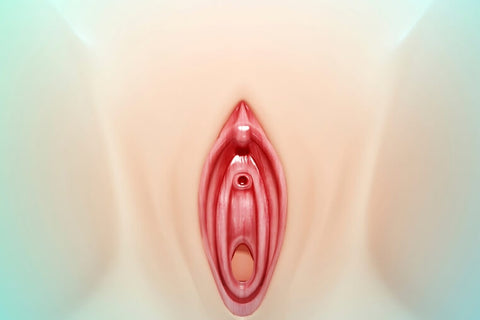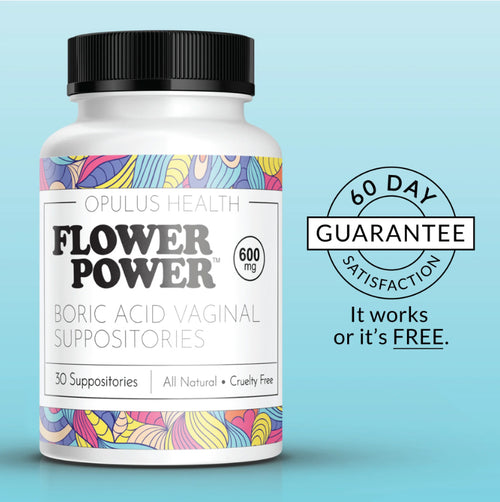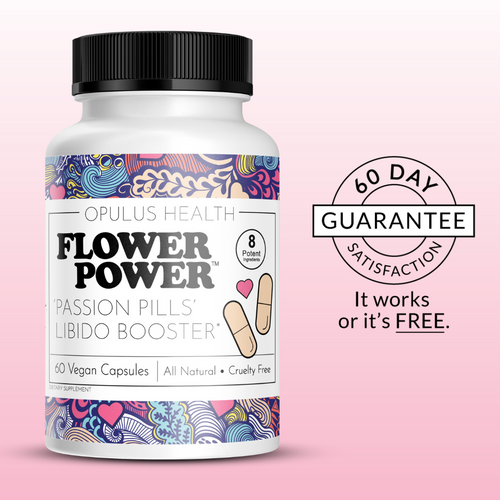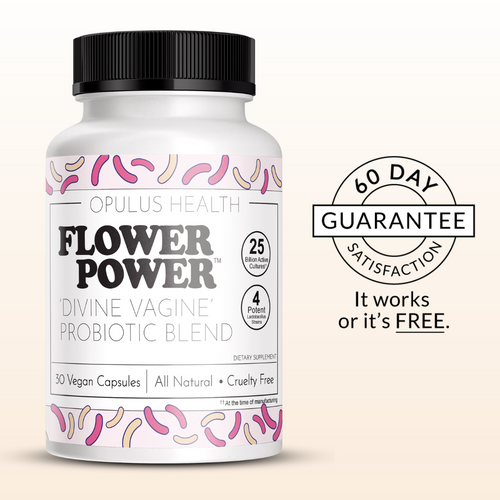Tips for maintaining a supple-looking vulva

Most women spend hundreds per month on skincare products. But they forget that their downstairs area needs even more tender loving care.
You don’t want to neglect the skin down there. Neglect is a leading cause of vaginal issues like dryness, chafing, discoloration, and vaginal odor. So your intimate skin is that important.
In today’s article, we’ll talk about how your intimate skin differs from the skin on your face. And most importantly, you’ll learn how to keep the skin around the vagina (including the vulva) looking and feeling inviting and yummy.
But first, how is your intimate skin different from the skin in other parts of the body?
How Intimate Skin is Different From The Skin on Your Face
On the surface, your vulva skin will look like the skin on your face. It’ll have the same skin color, or it’ll be a bit darker. It’ll have some hair. And it sweats too, just like the skin on your face.
But does that mean they’re all the same?
No! The similarities between them are only surface deep.
Your intimate skin is different from your facial skin because it’s connected to your reproductive system. Yes, it’s connected to your most intimate body part — that glorious vagina. That’s why your intimate skin is more delicate.
Here are 3 ways that your intimate skin differs from the skin on your face:
- It is the “door” of the vagina: Your vulva is the door of the vagina so it shares a lot in common with your vagina. It has a similar pH to your vagina (around 3.8 to 4.5). It has a microbiome. And it exchanges fluids with your vagina. And because it’s the door to the vagina, it helps to keep harmful bacteria from getting in. That’s why a huge part of your intimate care is to take good care of your intimate skin and vulva.
- Your intimate skin is thinner: The skin around your intimate area is much more delicate as we have explained before. It’s much thinner. That’s why you can easily get annoying issues like mumps, razor burns, and irritation down there.
- It has a natural flora: Your vulva has its own microbiome. Because it’s the vagina’s door, it has its own ecosystem.
It’s important for you to understand that. Your vulva and the skin around it is the door to your vagina. They connect your vagina to the outside world. And they also help to protect you against vaginal issues.
And let’s not forget, that skin is much more sensitive, too.
So what skincare routine can you adopt for your intimate skin and vulva? Here’s some highly-recommended advice…
Skincare Tips for Your Intimate Skin (and Vulva)
Unlike your face, you do not need a “robust” skincare routine for your intimate skin. Instead, there are a few key things you need to do. When you do them, you’ll keep your intimate skin happy.
Here are the only skin care tips your ladybit needs:
- What you need to do and what you must avoid: You want to avoid unverified feminine hygiene products. Your intimate skin does NOT need them. Instead, all you need to keep it clean and happy is to wash with warm water. And if you’re a health nut, then add a gentle soap. But make sure your soap is specifically for intimate health, and that it’s 100% free of harsh chemicals.
- Moisturizing: There are moisturizers designed for intimate skin. They can help to keep your intimate area looking supple and smooth. If you struggle with dryness or irritation, these moisturizers can be a lifesaver.
- Breathable Clothing: The right kind of underwear can make a world of difference. It can reduce vaginal odor, prevent vaginal infections, and keep you comfortable and sexy. What you want to avoid is heavily branded underwear that only look good on display… but they’re bad news for your vagina. They not only make you uncomfortable, but they also trigger rashes and skin chafing. Instead of those ones, focus on cotton, breathable underwear.
But that’s not all.
Don’t be like most ladies who only do the bare minimum. To get the best looking skin down there, you have to do a bit more.
Here are more tips to consider:
- Balance your pH frequently: Your pH is supremely important because your vaginal health depends on it. It is the on-off switch for your good bacteria. When you have optimal pH, your good bacteria is active. But when your pH is off, your good bacteria is off. To know if your pH is on or off, simply test it with a pH testing kit. And whenever you test it and it’s off, reset it with a pH vaginal wash or with a boric acid suppository.
- Invest in a good anti-chafing cream: If you’re very active or if your intimate skin is prone to chafing, then this is for you. Invest in a good anti-chafing skin cream. This will help you to prevent irritation and other issues of intimate skin.
- Prepare for postpartum or menopause: You have to prepare for the two most important times when your hormones change. That’s after giving birth and during menopause. To help you avoid any intimate skin issues, invest in special moisturizers or oils.
Ingredients to avoid when you buy products (and those to look for)
Your vulva is not a test site for harsh chemicals. Remember earlier when we said that your vulva/intimate skin is like the door to your vagina? Yes, they’re that connected to your vaginal microbiome. So you want to police anything that goes in there, especially chemicals.
Any harsh chemical that touches your intimate skin or vulva will find its way into your vagina. And that is NOT good.
Why is it not good? Because those harsh chemicals will upset your pH. They’ll throw off your microbiome. They’ll kill off your good bacteria and set the stage for vaginal infections.
So you have to be extremely careful with feminine hygiene products that you try. Most of them usually contain ingredients that are bad news for the vagina.
Here are some ingredients you need to keep away from your vagina:
- Alcohol: Alcohol is an ingredient in many intimate deodorants. But it’s also extremely drying. So avoid using products that have alcohol on your lady parts. These products will likely cause dryness, chafing and irritation on your intimate skin.
- Fragrances: The vagina should smell like vagina, not roses. So avoid products that promise your vagina will smell like fresh flowers. Those products contain chemicals that can trigger odor, allergies and other vaginal issues.
- Parabens and Sulfates: Parabens are known disruptors. This means that they can upset your vaginal microbiome. On the other hand, sulfates can strip your skin of its natural oils. So avoid both of them.
- Mineral Oils: Avoid mineral oils if you can. Why? Because they can block your skin’s pores and prevent your intimate skin from throwing out waste through sweat. Mineral oils are also known to worsen skin problems in the vagina.
Ingredients to look for in your feminine products
We’ve talked about ingredients you should avoid because they’re bad news. Now let’s talk about the good guys — the ingredients that help to keep your lady parts looking supple and yummy.
These are the ingredients your feminine products should have:
- Aloe Vera: Aloe is amazing. Its soothing properties can do wonders for your intimate skin, especially if you’ve had problems in the past.
- Chamomile: This is another ingredient known for its soothing and calming effect.
- Hyaluronic Acid: Just like you want to avoid dry skin, you also want to keep your intimate skin hydrated. That’s where this ingredient comes in.
-
Tea Tree Oil: Tea tree oil is amazing for vaginal health. Its antibacterial properties help your flora to fight bad bacteria.
Caution: Only use tea tree oil in very diluted forms. Otherwise it can cause problems for you. - Probiotics: Probiotics nourish the vagina with good bacteria. It’s these bacteria that form your self-cleaning mechanism, so they’re a must have. They also help to maintain a balanced vaginal flora. You can get your good bacteria from foods like yogurt and kefir. Or, you can get optimal doses from proven probiotic supplements.
Treatment Options for Vulvar Issues
Sometimes you might run into intimate skin issues like dryness, irritation, or even infections.
For minor irritations, here are two proven home remedies that can help:
- Applying coconut oil, and
- Doing cold compresses on the area.
For anything more severe, see a doctor. Your doctor will likely recommend treatments like… antifungal creams, antibiotics, or even laser treatments for more severe issues.
Pros and cons of home remedies and medical treatment
- Home Remedies: Generally safer but not always effective for severe issues.
- Medical Treatments: More effective but often come with side effects or higher costs.
When to consult a dermatologist
If you notice something unusual on your intimate skin, then you might need to see a dermatologist.
Here are some unusual signs that signal you need to see a professional:
- Constant itching,
- Changes in skin color, or
- Chronic dryness.
Conclusion
Just like you wouldn’t ignore taking care of your face, don’t leave your intimate skin to chance. It deserves attention too.






